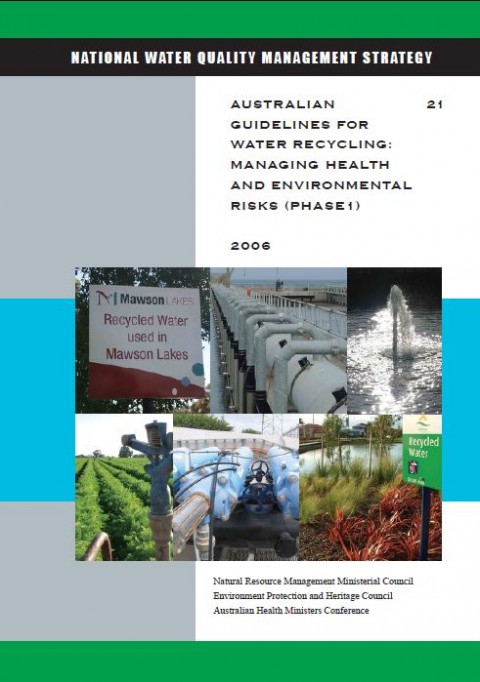Australian guidelines for water recycling: managing health and environmental risks (Phase 1)
EPHC, NRMMC, AHMC (2006)

Published in: 2006
Publisher:
Environment Protection and Heritage Council, Natural Resource Management Ministerial Council, Australian Health Ministers Conference
Author:
EPHC, NRMMC, AHMC
Uploaded by:
SuSanA secretariat
Partner profile:
common upload
10710 Views
691 Downloads
Location of library entry
Content - Summary
This document - the National Water Quality Management Strategy (NWQMS) National Guidelines for Water Recycling: Managing Health and environmental Risks - is an authoritative reference for the supply, use and regulation of recycled water schemes. Through recycling, various water sources that have traditionally been wasted, such as stormwater, sewage effluent and greywater can become a valuable resource. This document provides guidance on how such recycling can be safely and sustainably achieved. It focuses on uses such as agriculture, fire control, municipal, residential and commercial property, and industry.
Publication of these guidelines is timely, because pressure on freshwater supplies is increasing in many cities and regional areas of Australia, due to widespread drought and movement of population to large centres near capital cities. In recent years, several reports have suggested that we need to use water more efficiently; for example, by reusing water that has traditionally been seen as wastewater (SECITA 2002, Rathjen et al 2003, AATSE 2004). In response to this situation, the Environment Protection and Heritage Council and the Natural Resource Management Ministerial Council developed these national guidelines on water recycling, under the auspices of the NWQMS.
These guidelines overcome some of the deficiencies of related publications. For example, they are more comprehensive than the NWQMS Guidelines for Sewerage Systems, Use of Reclaimed Water (NHMRC and ARMCANZ 2000) and provide a consistent approach, whereas the guidelines developed by individual state and territory governments vary in their approach. An important feature of these guidelines is that they use a risk management framework, rather than simply relying on post-treatment testing as the basis for managing recycled water schemes.
Bibliographic information
EPHC, NRMMC, AHMC (2006). Australian guidelines for water recycling: managing health and environmental risks (Phase 1). Environment Protection and Heritage Council, Natural Resource Management Ministerial Council, Australian Health Ministers Conference
Filter tags
East Asia & Pacific English Greywater or wastewater Groundwater protection (WG11) Guidelines and manuals Recommended by SuSanA (other than SuSanA publications)















